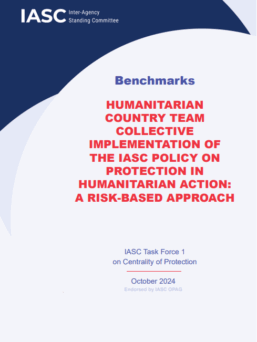This note from ERHLA provokes considerations for changing humanitarian practice to be better equipped for facing complex challenges and the changing landscape of humanitarian needs.
The note highlights the need to absorb and apply learnings from other fields and disciplines, including social innovation, learning sciences, and behavioral sciences to help solve problems. It points to the need for systems-analysis and foresight skills to identify emerging challenges and opportunities – pointing to the shift from reactive to anticipatory; and innovating for better accountability to affected people.
A tangible example is this self-help health project where community based organisations such as Farmer’s Clubs facilitate access to mental health care. It’s aim is to reduce the 80-90% of people in India who receive no treatment for their mental illness.
Recognizing the increasing interest in applying innovation techniques, like Design Thinking, the article teases out the implications for practitioners and donors in changing conventional ways of working and investing in innovative approaches.
Please find the full blog here.



